
McKenzie Prillaman
Staff Writer
McKenzie Prillaman is a science and health journalist based in Washington, DC, who interned at Science News in spring 2023. She holds a degree in neuroscience from the University of Virginia and studied adolescent nicotine dependence at the National Institute on Drug Abuse. After figuring out she’d rather explain scientific research than conduct it, she worked at the American Association for the Advancement of Science and then earned a master’s degree in science communication from the University of California, Santa Cruz. Her work has appeared in Nature, Scientific American, The Cancer Letter and The Mercury News, among other publications.

Trustworthy journalism comes at a price.
Scientists and journalists share a core belief in questioning, observing and verifying to reach the truth. Science News reports on crucial research and discovery across science disciplines. We need your financial support to make it happen – every contribution makes a difference.
All Stories by McKenzie Prillaman
-
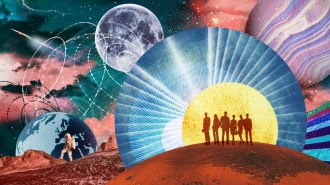 Space
SpaceAmerica risks losing its role as a space science pioneer
Funding uncertainties are pushing U.S. space scientists out of the field and putting existing and future space missions on the chopping block.
-
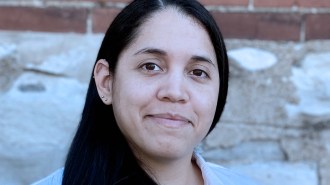 Neuroscience
NeuroscienceTo decode future anxiety and depression, begin with a child’s brain
A child-friendly brain imaging technique is just one way neuroscientist Cat Camacho investigates how children learn to process emotions.
-
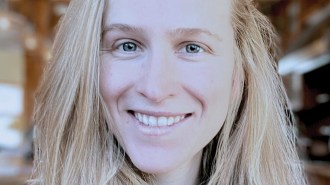 Planetary Science
Planetary ScienceHow did Pluto capture its largest moon, Charon?
Planetary scientist Adeene Denton runs computer simulations to investigate Pluto, the moons of Saturn and other icy bodies in the solar system.
-
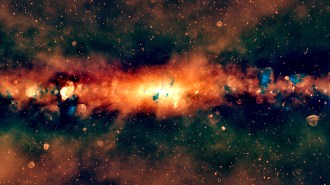 Astronomy
AstronomySee the largest, most detailed radio image of the Milky Way yet
Supernova remnants, stellar nurseries and more populate the new edge-on view of the Milky Way as seen from Earth’s southern hemisphere.
- Astronomy
Astronomers saw a rogue planet going through a rapid growth spurt
The growth spurt hints that the free-floating object evolves like a star, providing clues about rogue planets’ mysterious origins.
- Astronomy
See a 3-D map of stellar nurseries based on data from the Gaia telescope
The map, spanning 4,000 light-years from the sun in all directions, combines a chart of space dust with the effects of a rare type of young, hot star.
-
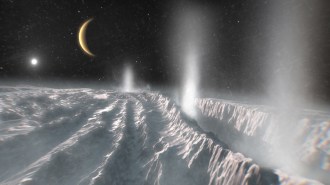 Planetary Science
Planetary ScienceEnceladus’ ocean may not have produced precursor chemicals for life
Building blocks of life have been found on this moon of Saturn. They may come from chemical reactions beyond Enceladus’ possible life-supporting ocean.
-
 Particle Physics
Particle PhysicsA primordial black hole may have spewed the highest energy neutrino ever found
The Big Bang may have spawned these theoretical black holes, whose lives are thought to end in a burst of extremely energetic particles.
-
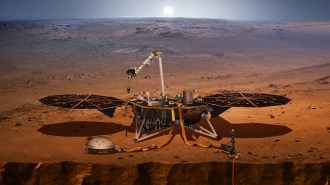 Planetary Science
Planetary ScienceSeismic waves suggest Mars has a solid heart
NASA’s InSight lander listened to Marsquakes for four years. The tremors revealed that Mars may have a solid inner core.
-
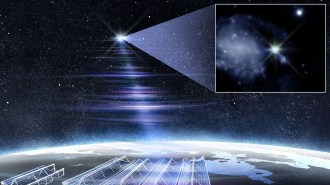 Astronomy
AstronomyAstronomers detect the brightest ever fast radio burst
The fast radio burst came from 130 million light-years away. That proximity allowed an in-depth search for what produced the mysterious signal.
-
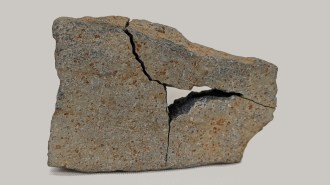 Planetary Science
Planetary ScienceA Mars rock analysis tool proved its mettle on a chance find from Arizona
On Mars, the Perseverance rover found a spotted rock that could bear signs of ancient life. On Earth, a researcher used a lookalike for a dry run.
-
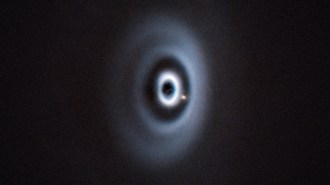 Astronomy
AstronomyA newborn planet munches on gas and dust surrounding its host star
In a first, astronomers imaged a baby planet within a gap in the disk of material around a star, confirming predictions about how rings form.